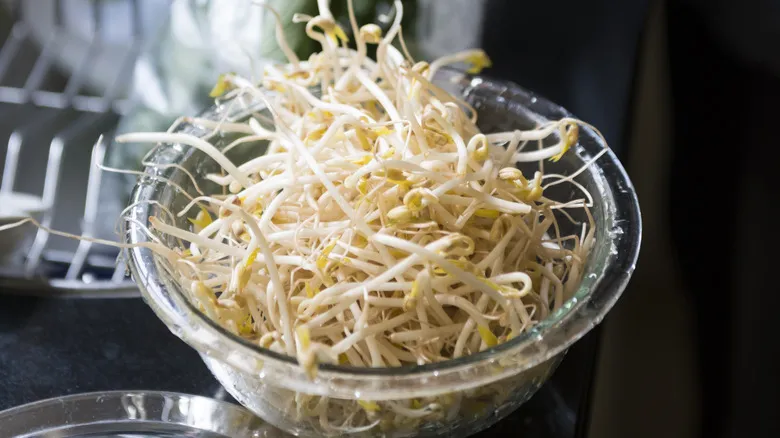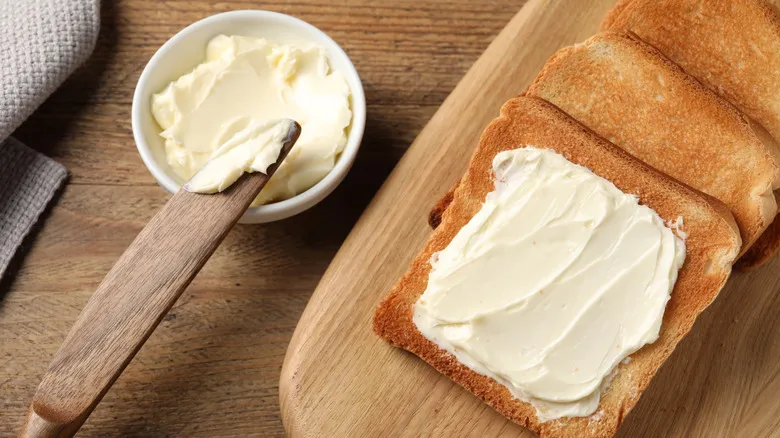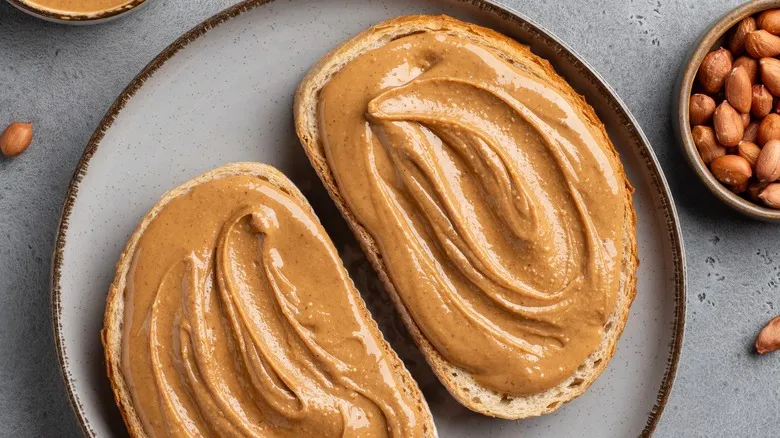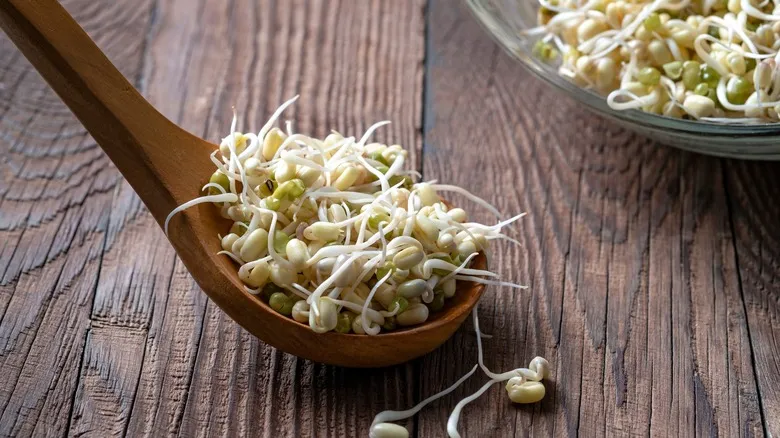How you can lower the risks when eating raw sprouts

If you're growing your own beans and seeds, rinse them with white or apple cider vinegar to eliminate any contamination. For store-bought, pre-sprouted varieties, wash them under running water to remove bacteria, although some contamination may still exist if bacteria infiltrated the seed prior to sprouting. To further reduce risks, consider purchasing refrigerated sprouts and keeping them cold until you're ready to use them, as lower temperatures can inhibit bacterial growth.
Before eating sprouts, inspect them carefully. Discard any that are discolored, wilted, have a strong odor, or feel slimy. Ideally, you should always choose fresh sprouts that are crisp and have a consistent appearance, and avoid consuming any that are past their expiration date. While this won't eliminate the risk entirely, it will significantly reduce it, allowing you to enjoy your sprouts with greater peace of mind.
Recommended

The Genius Trick To Make Cold Butter Toast-Ready

How Salvadorians Turn Leftover Turkey Into A Delicious Sandwich

The Unexpected Ingredient That Gives Peanut Butter Sandwiches A Fancy Twist

The Pantry Staple That Removes Pesky Stains From Your Decanter With Ease
Next up

